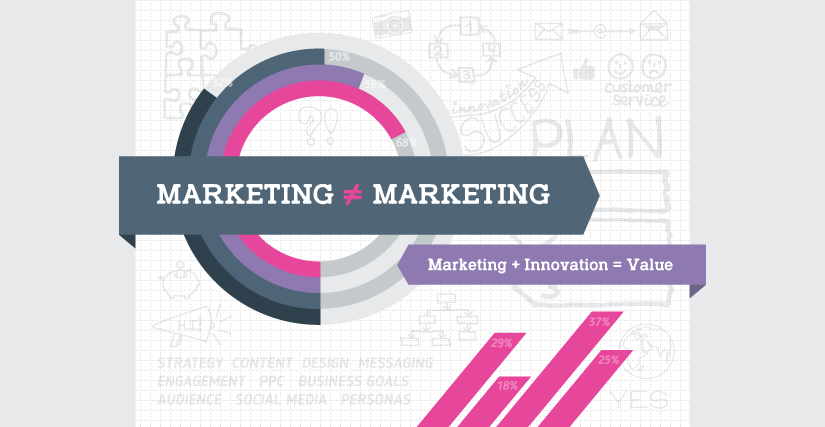The most popular definition of marketing, according to a quick Google search, is “the action or business of promoting and selling products or services, including market research and advertising.”
This definition, while practical, covers a common, but short-sighted perception of the role of marketing. By this description, companies make a product or service, and it’s the job of the marketing department to advertise and support sales efforts. But mine deeper, and you’ll discover a larger, more powerful vision–a marketing strategy that can truly help your business.
True marketing is the discipline of discovering, creating, and delivering value.
Phillip Kotler is the S.C. Johnson & Son Distinguished Professor of International Marketing at the Kellogg School of Management at Northwestern University. A formally trained economist, Kotler is internationally recognized as the world’s leading expert on marketing strategy. Here is how he defines marketing:
- “The the science and art of exploring, creating, and delivering value to satisfy the needs of a target market at a profit.”
- “The art of creating genuine customer value. It is the art of helping your customers become better off. The marketer’s watchwords are quality, service, and value.”
In short, one must understand customers’ needs, then ascertain the best way to deliver them value. Kotler believes marketing to be both science and art. Science, in the form of research, delivers the critical information necessary to shape marketing strategy. But information without insight is impotent. It must be translated into authentic connections that touch and resonate with people.
It’s the discipline that drives all other functions of business.
A great (and still relevant) giant in business management was Peter Drucker. He stated,
“Because the purpose of business is to create a customer, the business enterprise has two–and only two–basic functions: marketing and innovation. Marketing and innovation produce results; all the rest are costs. Marketing is the distinguishing, unique function of the business.”
Marketing, then, must lead and drive all other business activity. Here’s an example.
One of our clients is a century-old company that had enjoyed success with a traditional, push-driven manufacturing model. They made cabinets on a mass scale, then sent sales people out to sell them to builders. This was good work until imports drove basic builder products into a price point game, radically changing the marketplace. Rather than continue their manufacturing-driven business model—which would almost certainly result in the demise of the business—they took a courageous initiative to change, and adopted a marketing-driven business model.
They listened to their customers as never before. Then, they studied the marketplace and identified ways to create value that would put them in a long-term, sustainable position for success. They redesigned the product planning and manufacturing processes in order to deliver on said value. Finally, they focused on using a marketing model to drive business planning and production. Now, as it goes into its 110th year, the company is bursting with renewed energy and stability. The future looks bright.
Use marketing strategy to position your business for success.
Companies that implement a marketing-driven business model can establish competitive advantages that build long term success. By constantly seeking new ways to deliver value, they are able to innovate and align their resources appropriately. Those who treat marketing as a tactical activity, simply to feed the sales pipeline, miss out on the area’s long term power. When rapid changes occur in the marketplace, they struggle to adapt.
Remember the Drucker quote: “marketing and innovation.” Follow the true meanings of these words, and remain malleable to success.
Interested in learning more about marketing strategy and how it can drive greater success for your business? We love to talk!






